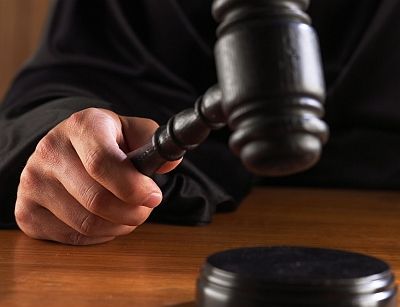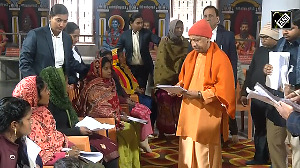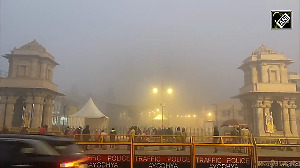 The Supreme Court on Friday has fixed December 2 as the date for hearing a batch of petitions challenging the constitutional validity of the decision to demonetise currency notes of Rs 1,000 and Rs 500 and the inconvenience faced by the common man due to it.
The Supreme Court on Friday has fixed December 2 as the date for hearing a batch of petitions challenging the constitutional validity of the decision to demonetise currency notes of Rs 1,000 and Rs 500 and the inconvenience faced by the common man due to it.
A bench comprising Chief Justice T S Thakur and Justice D Y Chandrachud said, "We will examine both aspects (inconvenience and constitutional validity) of the matter. Come on Friday at 2 pm".
Demonetisation: Take the Pulse of the Nation poll!
The bench, meanwhile, asked Attorney General Mukul Rohatgi, appearing for the Centre, to file additional affidavit, if any, explaining the "schemes and steps" taken to ease the situation that has arisen due to demonetisation.
Senior advocate Kapil Sibal, appearing for one of the petitioners who has challenged the Centre's November 8 decision on demonetisation, said the court should start hearing the matter from Tuesday itself.
Rohatgi, however, opposed the contention and said let all the petitioners, who have approached various high courts on the issue, come to the apex court which would take a call on December 2 as to whether the Supreme Court or the Delhi high court would hear them all.
The Centre recently moved the apex court seeking transfer of all the petitions pending in various high courts to either the Supreme Court or one of the high courts.
On Thursday, the Centre had filed an affidavit in the apex court on demonetisation and had said that the "bold move" would eradicate black money and slush funds operating since Independence which cast a "parallel economy" hitting the poor and the middle class.
In its affidavit, Centre had also said the decision, in which total secrecy was maintained, would now help in proper implementation of the ambitious 'Jan Dhan Yojana' under which around 22 crore bank accounts for poor people have been opened.
Further, it has said that demonetisation is seen as a check on the real estate sector where prices get pushed up artificially, reducing the availability of affordable housing for the poor and the middle class.
Elaborating on several measures including the "thrust" given for increasing digital payments in the economy through credit and debit cards, Internet banking, mobile apps and e-wallets, the Centre has said their use has seen a jump of nearly 300 per cent in the last 10 days.
In its affidavit, the Centre has also given various reasons for maintaining secrecy about the move which was announced by Prime Minister Narendra Modi just after 8 pm on November 8 and came into force from that midnight.
The affidavit was filed as the apex court, on November 15, had asked it to file a comprehensive affidavit detailing steps taken so far and other proposed measures to ameliorate the harassment and inconvenience caused to citizens due to the demonetisation of high value currency notes.
Earlier, the apex court had refused the Centre's request to stay the proceedings pending before various high courts, saying people may get "immediate relief" from them.
It had sought a response from all the petitioners, who have challenged the demonetisation move in different high courts, on a plea by the Centre seeking transfer of all these matters to either the apex court or one of the high courts.
The attorney general had told the court that the situation was "much better" and more than Rs 6 lakh crores have been deposited so far in the banks since the demonetisation move and there is a big surge in digital money transaction.
Meanwhile, the Delhi high court on Friday said that it will not go into the correctness of the Centre's policy on demonetisation as the Supreme Court was already seized of the issue.
A bench of Chief Justice G Rohini and Justice V K Rao also refused to issue any direction to the Centre to remove the cap on daily withdrawal of money deposited by the public in banks before demonetisation of Rs 500 and Rs 1,000 currency notes.
"We would not go into the correctness of the Centre's policy on demonetisation as the Supreme Court is already seized of the issue," the bench said.
The court said the people can always withdraw their money, so there is no point of issuing any direction.











 © 2025 Rediff.com -
© 2025 Rediff.com -